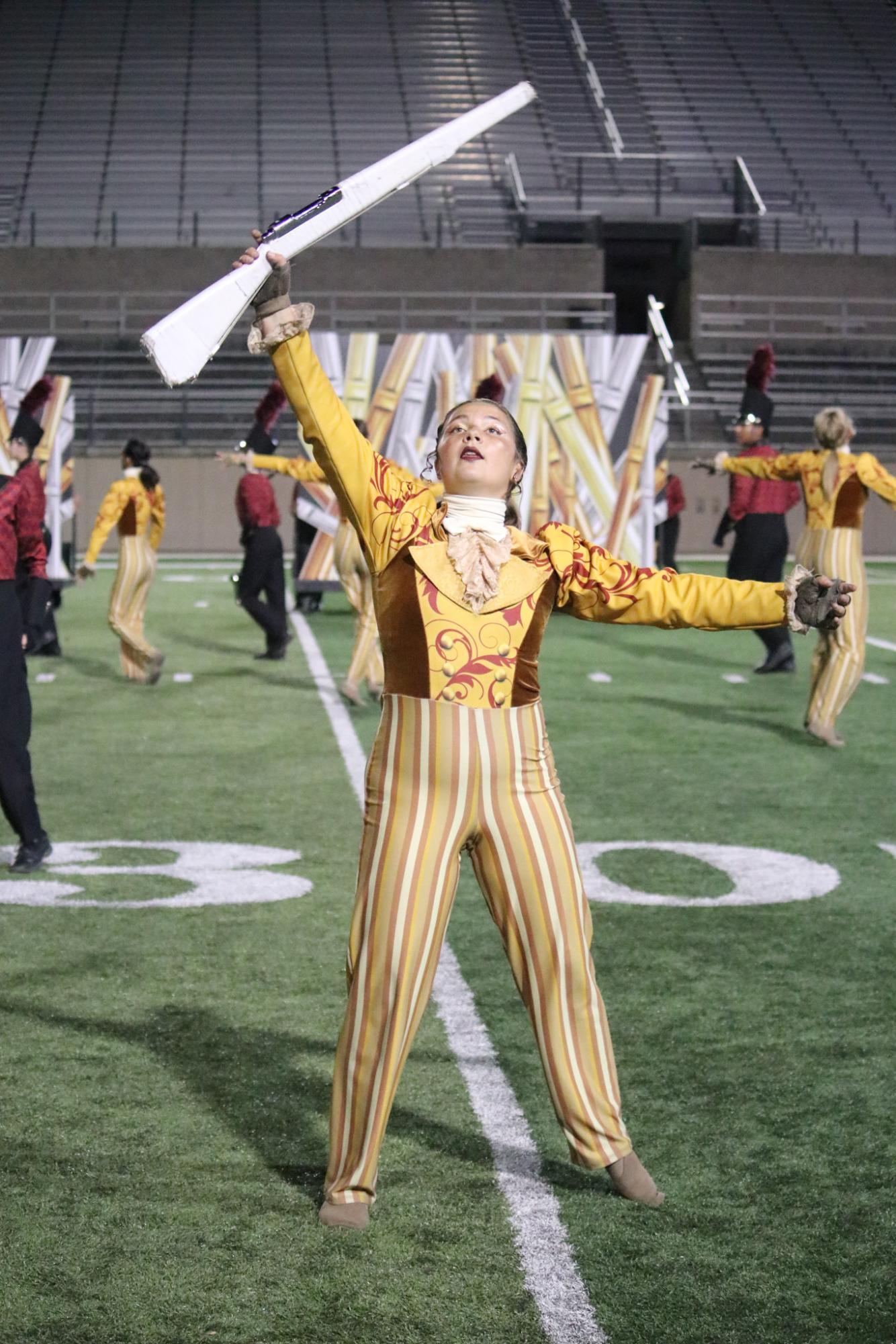With her flag flying high, senior Lindsey Heyman is a picture of grace on the football field. The team is a well-oiled machine: their makeup is flawless, their costumes shine bright and their props spin and arc in the air right on cue.
Heyman has been a part of the color guard all four years of high school, climbing the ranks over the years. In her sophomore year, Heyman became vice president of events, a role in which she coordinated with other VPs of Events and directors to plan events for the band and the guard, boosting team morale. Then, her junior and senior year, she served as a team captain.
“Sophomore year, once I made leadership, I kind of knew I would end up here since the stars perfectly aligned,” Heyman said. “But as a freshman, I don’t think I ever would have thought I would have gotten here. Sophomores don’t make leadership, typically. So that was a cool thing.”
Heyman’s experience in color guard goes all the way back to middle school, when she first became exposed to the sport. This was possible because of Spin Club, a middle school class that receives direct instruction from high school color guard members during after school rehearsal.
Despite having served as captain last year, Heyman believes the focus of her role has shifted now that she is a senior.
“Though I do have most of the same responsibilities, I have handed off some of them to the other two captains because they are juniors,” Heyman said. “It’s more of a mentorship role as compared to my previous captain experience because I’ll be gone next year.”
Color guard often performs in conjunction with the school’s band. However, while the band has a marching season and then a concert season, color guard has a marching season and a winter season.
“They’re really only doing athletically involved stuff for half the year, but color guard is athletically involved the entire year,” Heyman said. “And not only that, but winter season, I would say, requires more physical activity.”
For Heyman, color guard is truly a family affair. Both of her parents play major roles in color guard and band management. Her sister, junior Alexandra Heyman, is also part of the guard itself.
“My mom is actually the guard lead,” Heyman said. “She’s the parent in charge of everything. She does meals for the girls and chaperones. My dad is a board member for the band, so he’ll do stuff for that. And my sister also became involved because she wanted to do guard as well. That random day in seventh grade when I got that flyer and I brought it home, she was like, ‘Hey, can I come with you?’ And that’s how it started.”
There are several traditions which Heyman has participated in over the years with her team, including team chants before each performance. For instance, one common repeat-after-me saying the team uses is “I believe in me, I believe in you. I believe in me and my ability, I believe in you and your ability. And I know as a team, we can accomplish anything. We are Rouse Guard 2025.” Another is a breathing exercise – “Breathe in good, breathe out bad. Breathe in good, breathe out bad.” These traditions have helped Heyman become confident in her abilities and focus on the performance.
“I don’t really get nervous before performances and people who are always like, ‘That’s so weird!’” Heyman said. “‘How do you not get nervous?’ I don’t know, I just do it. I think part of that comes from just not thinking about it too hard.”
Despite being a senior, Heyman does not plan to stop her color guard journey after high school. She is attending the University of North Texas and plans to join their color guard, in addition to auditioning for an independent guard. Independent color guards are based all across the country and offer college students a chance to continue their involvement in the sport.
“I can’t imagine life without guard because I’ve been doing it so long,” Heyman said. “It’s become such an integral part of my life that I think if I stopped doing it, I wouldn’t know what to do with myself. So I’m actually going to continue doing it in college. I think it provides structure in my life that I don’t typically have that I’ve kind of come to rely on.


